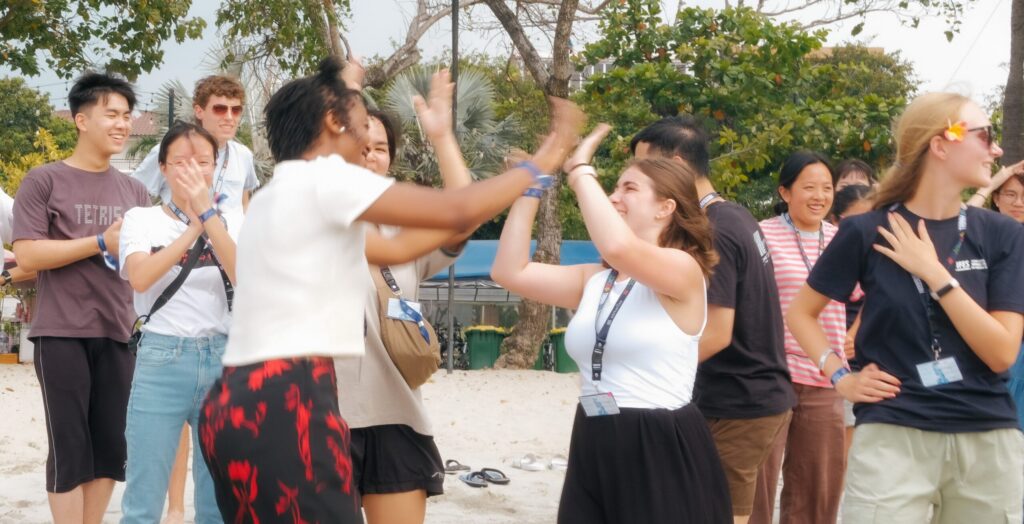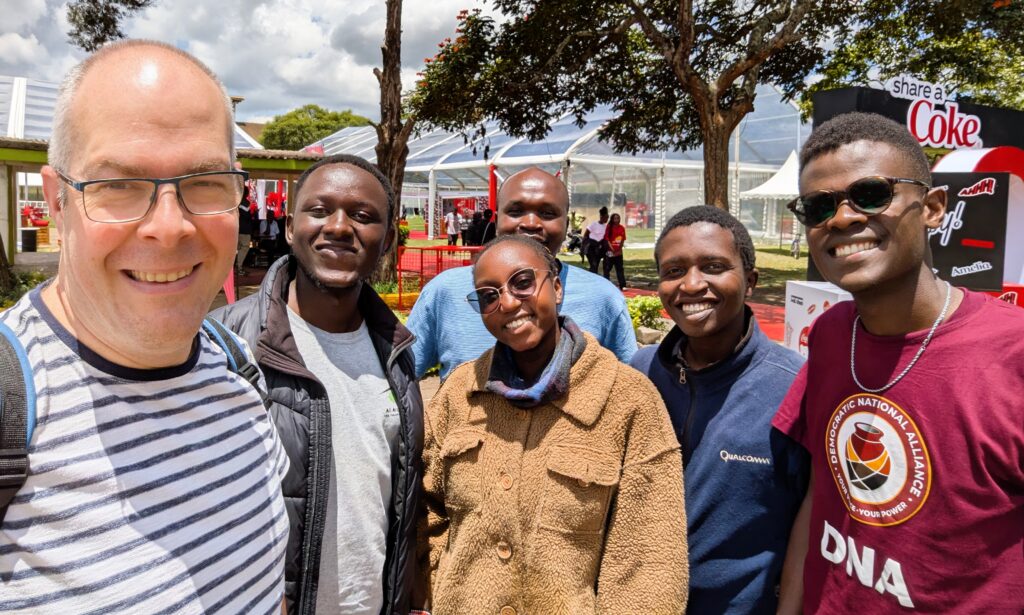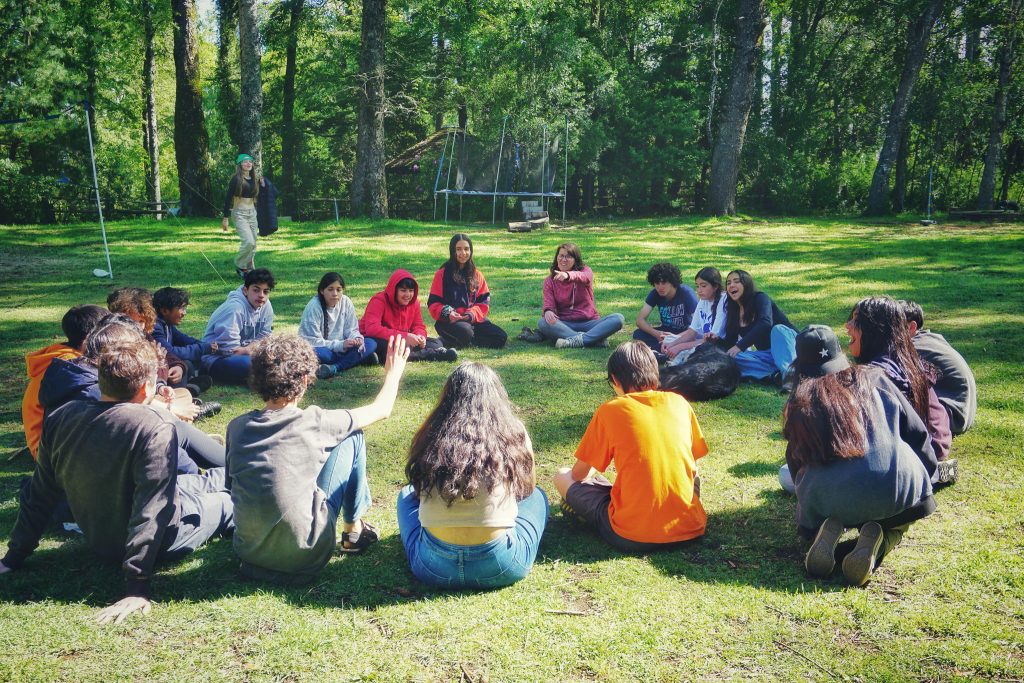
HOW’S THE FAMILY?
Taking the pulse of a global fellowship of student movements
”How’s the family?”
If you’re talking about a spouse and two or three children, the answer to that question is likely to be fairly simple and focused. But what if you have twelve children? And thirty grandchildren?
Where do you start?
It may feel a little like that with IFES – a family of 163 affiliate member movements, with “founding” great grandparents and “pioneering” newborns. How do you put your finger on the pulse of this global fellowship?
THE IFES FAMILY – THRIVING TOGETHER?
Across 180 countries and territories, the IFES family lives for Jesus in very different situations. But one way we gauge the big picture of how the whole family is faring is through our “national movement survey”.
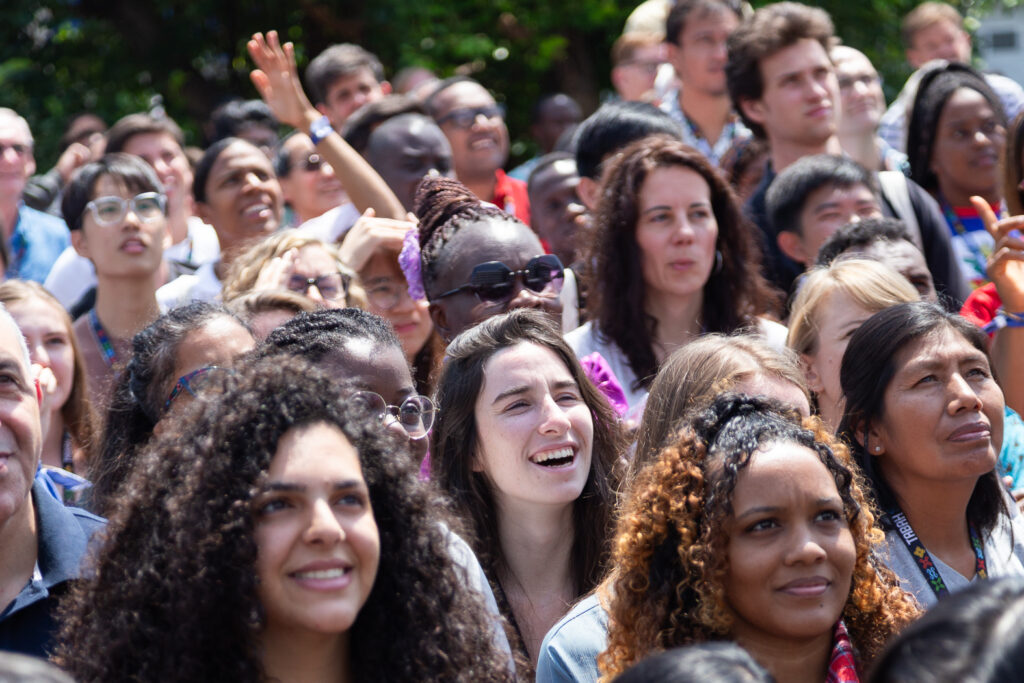
At the start of each year, a set of questions is sent to each movement. A designated person (usually the General Secretary or Board Chair) uses these to review the previous year. It’s an opportunity for national movements to reflect on how they are “beginning, growing, or maturing” in ministry areas associated with our Thriving Together priorities.
The survey also provides space to tell how God has been at work in the national movement and share prayer requests.
The IFES Ministry Strategy & Impact team then collates this data and summarises the findings in an “insights report”.
So, how’s our family doing?
Two thirds of our movements responded to the survey. And, regardless of national context – whether a pervasively nominal Christian culture, a secular, post-Christian society, a perilous, war-torn land, or an aggressively other-faith majority state – one thing was clear: the IFES family saw God at work.
AWARE OF GOD’S MIGHTY ARM
A number spoke about doors being opened. In the Czech Republic, “God opened new doors” with the Natural Science Faculty and, in Kosovo, God “opened doors that we had never thought of”.
In Europe, many movements witnessed a spiritual openness, perhaps echoing the recently reported “quiet revival”:
“There seem to be more non-Christians at the activities!” (GBU France)
“Growing numbers of students are attending our Passion Weeks.” (IFES Nederland)
“The group in Hasselt was one of our smallest groups, but they now meet at the university weekly and the group has grown to about 25 students.” (Ichtus Belgium)
“Students are becoming believers.” (UCCF Great Britain)
“God is working through the spiritual openness in Ireland. We have seen students turn from witchcraft after encounters with Christ.” (CUI Ireland)

A similar openness was reported in the South Pacific (TSCF Papua New Guinea) and North America (InterVarsity/USA and IVCF Canada). Movements in the Caribbean saw “students come to Christ” (IS/IVCF Belize) and “thousands of students give their hearts to Jesus” (ISCCF St Vincent & Grenadines), and ABU Puerto Rico noted “students converted to Christ”.
Tim Adams, IFES General Secretary, sums it up well:
“The survey confirms what we have seen on the ground: more students are coming to Christ. It’s very encouraging to see new groups and movements, especially as some of these are spontaneous initiatives. They show that God is at work and creating opportunities.”
AWARE OF GOD’S GOOD HAND
IFES movements also testified to God’s work of protection and nurture amid acutely difficult circumstances, such as persecution, political unrest, poverty, and war.
In the Middle East and North Africa region, movements said:
“The Lord has assisted us throughout the year with his protection and encouragement, even though we live in an environment hostile to the gospel.”
“God is good and always works miracles in our country.”
“Despite the exhaustion and challenges caused by the ongoing conflict, we’ve witnessed students and graduates stepping up to support one another and create spaces of peace and community on campuses.”
And movements in sensitive countries in East Asia shared:
“God is sovereign. He protects us in all seasons”… “God protects us through many unexpected events”… “He sustains and guides us all the way. He gives us wisdom how to respond to the needs”… “God continues clearing the hard ground to make way for a student movement.”
In short, IFES movements are grateful to God for his manifold works, which also include “raising up the next generation of leaders” (FCS Mongolia) and “students growing in their prayer life” (FOCUS Zimbabwe).
But what can we say about how God is using the family to achieve such purposes?
How’s it doing in its mission and ministry?

ACTIVE IN WITNESS – BUT COULD BE MORE SALTY?
The majority of movements (61%) reported that students were in the “growing” or “maturing” stages of “taking the initiative to share the good news of Jesus Christ with those around them”.
Almost all movements (96%) said they focused on “empowering students to witness to the good news of Jesus Christ” – evangelism remains a priority. A variety of methods were mentioned: Bible studies, the Mark Drama, Mission/Events Weeks, creative outreach (like escape rooms), camps, and the sharing of testimonies.
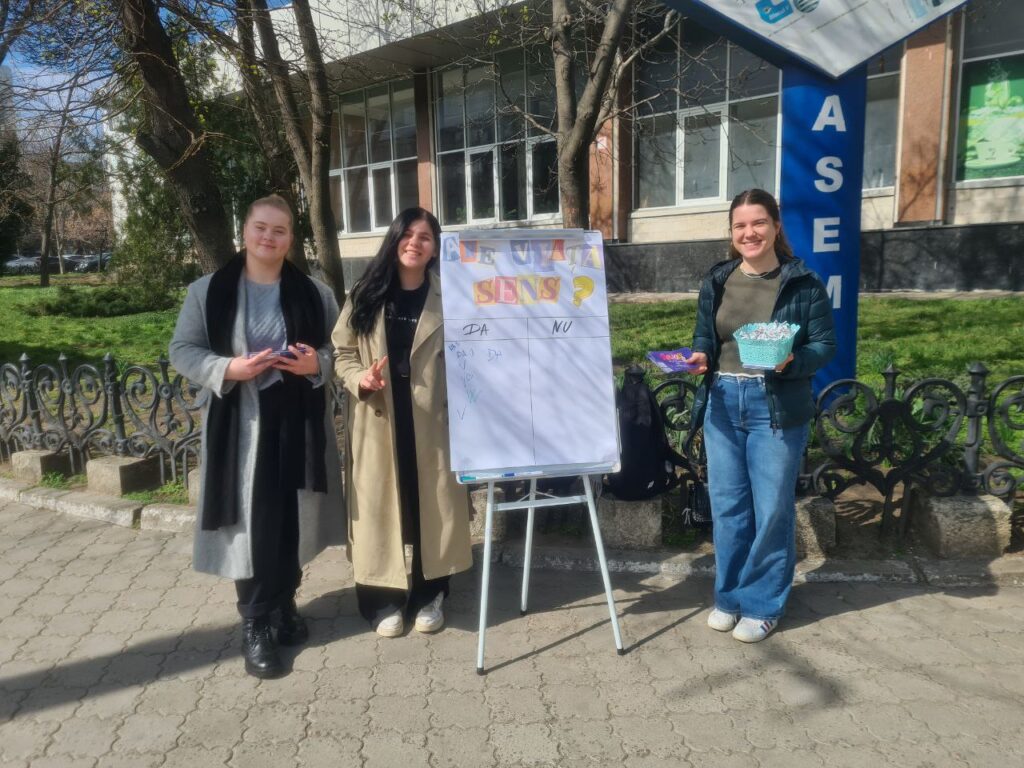
A movement in North Africa said that “though the students are few, they are actively growing in their relationship with God and their confidence in sharing the Word with others”, while ZVEŠ Slovenia shared that “students are being more public about their faith”.
But “thriving in witness” is not merely about evangelism. It’s about “engaging the university” as well.
Yet, the survey revealed that only around half (57%) of the movements had “empowering students to bring their Christian voice and service to the university” as a focus area.
Nonetheless, some movements did note progress:
“We’ve witnessed a transformation in students’ lives – from a nominal understanding of the gospel to actively taking leadership in sharing kingdom values within their communities.” (FOCUS Sri Lanka)
“Christian Reflection and Ethics Forums provided spaces for dialogue and allowed students and graduates to confront their faith with societal realities (justice, corruption, entrepreneurship, social responsibility).” (GBUSS Senegal)
One movement mentioned a “growing awareness and desire to influence the thought life of the university through the application of Christian truth to academic study” (UCCF Great Britain) and another that the “students have been challenged to understand their studies in the light of their Christian faith and how to serve the university (not just be served by it)” (GBU Portugal).
Nevertheless, half of the IFES family reckoned that the statements “Christian faith shapes the way students approach their studies” and “Students can dialogue relevantly and biblically around the big issues in their context” were either not evident at all or just beginning to be seen in their movements.
For IFES Associate General Secretary Annette Arulrajah, this is an area that needs strengthening:
“The witness we want to see is not merely the proclamation of the gospel but the salting of the earth and the arresting of the decay around us. We need to seize the opportunities of the moment to challenge the norms and thought-processes in our universities.”
COMMITTED TO THE WORD – BUT COULD BE MORE FRUITY?
The vast majority of movements (85%) reported that students were in the “growing” or “maturing” stages of “meeting regularly to study the Bible”. And almost all movements said “nurturing students towards resilient discipleship rooted in the Bible” had been a ministry focus.
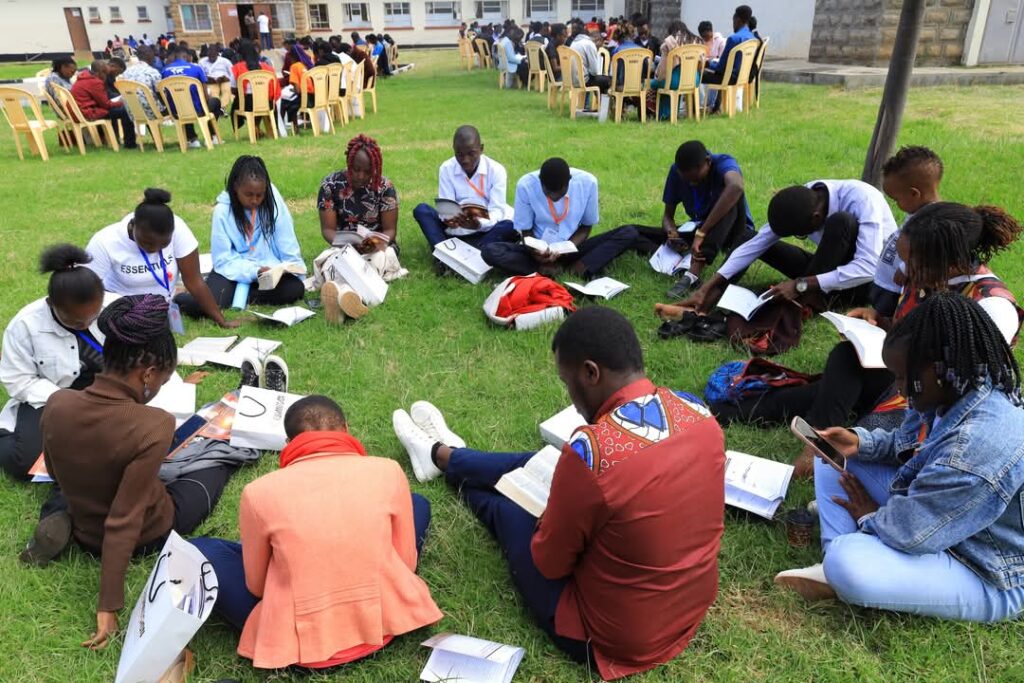
Other responses under “thriving in whole-life commitment” show how vital such holistic discipleship is. For example, although 44 movements could say that they saw students in the “maturing” stage of “meeting regularly for Bible study”, only nine could say that they were “maturing” in being “firmly rooted in the Bible”.
Similarly, the number of movements in the “maturing” stage of “showing love and care for others” and “meeting regularly to pray” were lower than 44 (19 and 17 respectively) and strikingly lower for “reflecting godly values in every area of life” (just four).
“We can’t take for granted that study of God’s Word will result in greater love for him through our living. We need to help students encounter and embrace the call of the Lord upon their lives. The IFES Scripture Engagement ministry exists to catalyse that call for holistic discipleship. We need to keep on in this way because a generation has arrived at our doorsteps that no longer wants concepts and theories. Rather, they want to see the living God at work in their lives.”
(Annette Arulrajah, IFES Associate General Secretary)
Thankfully, the majority of movements report that they are growing in whole-life commitment.
In ABUB Brazil, regional gatherings explored the theme of joy in Philippians and were able to “deepen their spirituality in the gospel and face some big issues such as mental health and violence against women”.
NBCBS Nepal shared:
“Youth migration has become a critical issue, with many young people leaving the country every day in search of employment. However, through the influence of our movement, some have made a different choice – they decided to remain in Nepal and pursue a career in government service, a field with very few Christian representatives.”
In one East Asian movement, a student refused to take a shortcut in her exam even though it meant she needed to extend her studies by another semester. And FOCUS Kenya mention their Hesabika initiative that’s “challenging graduates to transform society wherever they are”.
“Students are realising that Jesus is concerned with their entire lives, helping them grow as disciples, and not just in a specific role” (ISCCF Saint Vincent & Grenadines).
WIDELY CONNECTED – BUT HUNGRY FOR COLLABORATION
It was heartening to see that around two-thirds of movements considered themselves in the “growing” or “maturing” stages of being “engaged with other like-minded organisations”. And almost three-quarters said that “strengthening existing partnerships with churches and like-minded organisations” was a focus area.
MUC El Salvador has promoted collaboration with two other organisations that work with students and young people in the country: “There’s been a greater focus on working with pre-university schools, and this has allowed us access to university campuses where we didn’t have a presence before.” And SCF Mauritius say that the difficulties involved with pioneering new student groups on campuses has led them to partner with churches to offer Bible study training.

A desire for stronger collaboration across the IFES family was evident, not only for “thriving on new ground”, but also for “thriving into the future”:
“It would be helpful to have opportunities to learn from other movements facing similar challenges – building relationships with their staff and gaining insights into their methods, experiences, and approaches to ministry and organisational life.” (FOCUS Sri Lanka)
ZAFES Zambia noted that their movement could further flourish by “undertaking various global resource programs to better understand their work and key tools, and by sending staff to learn from other movements in the region.”
Reflecting on needs expressed across the IFES family, Tim Adams (IFES General Secretary) affirms:
“We must ensure that the support offered by our global ministries strongly aligns with what national movements are seeking – particularly the desire for support in the areas of digital ministry, graduate ministry, and high schools work.”
A PROMISING HEALTH CHECK
This year’s pulse has been taken. And it shows promising signs of good health. The responses in the national movement survey portray a family that’s thriving together – dependent on God, active in sharing the gospel, committed to Scripture, and connected in Christ.
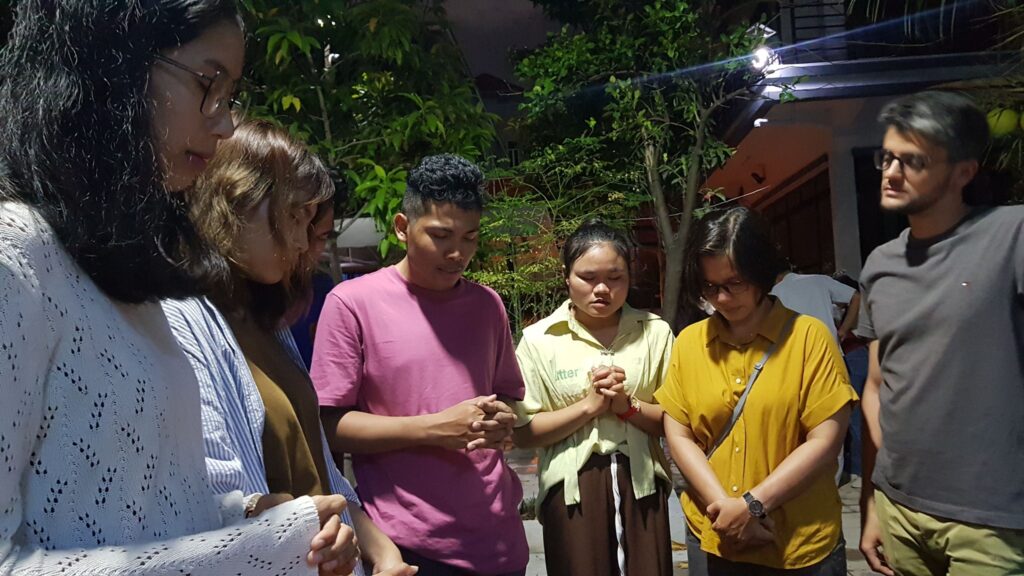
That’s not to say that fitness can’t be improved.
More salt in our witness, more fruit in our whole-life discipleship, and deeper collaboration in our fellowship – all of these will be welcome. We’re still learning and maturing.
In many ways, our pulse echoes that of our early church family’s. In places, it was shining with love, faith, and hope (Colossians 1), while in others it was dulled by social inaction (James). In some areas, it was struggling to apply the gospel to its religious heritage (Galatians); elsewhere, it needed to relate citizenship, work, and domestic life to its calling (1 Peter).
Nevertheless, it was possible to say that the church was growing (Acts 21:17-19). Sure, there were issues that needed addressing, but Christ’s presence was evident (Revelation 1-3). And with his divine power at work in them, they were urged to make every effort to grow in godliness (2 Peter 1:3-8).
How’s the family?
With Christ as its head, this family has every hope of being and doing well.

Another way you can see the big picture of what God is doing through IFES is by reading this year’s Impact Report!
And, on 16 October, pray for the local needs of our global family by using requests sent in from campuses across the fellowship – be part of Immeasurably More, World Student Day 2025!


